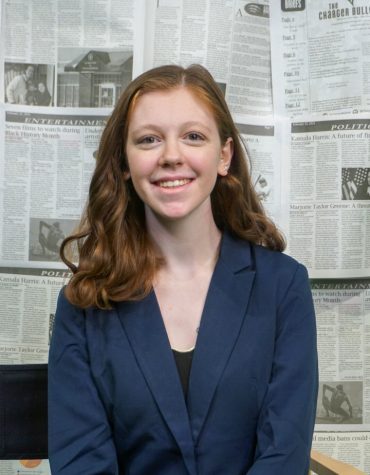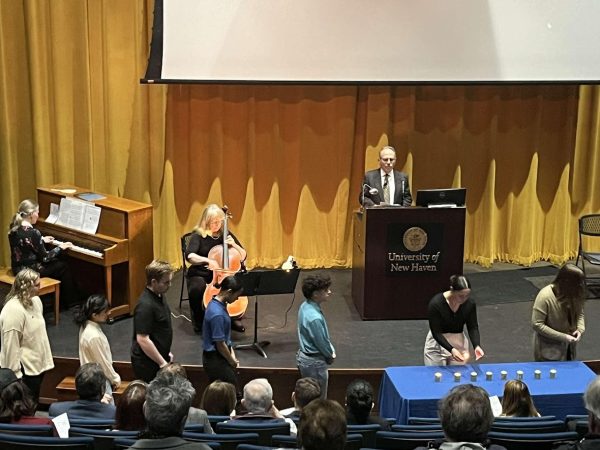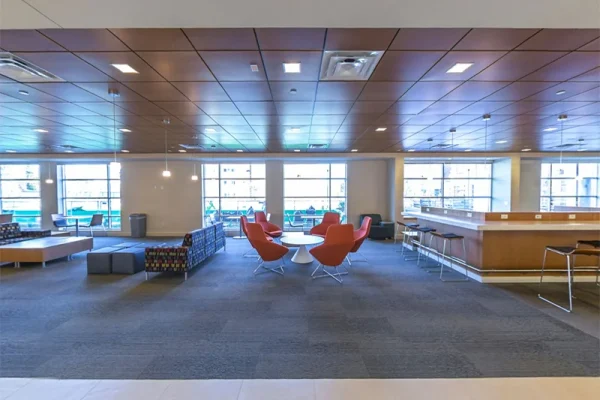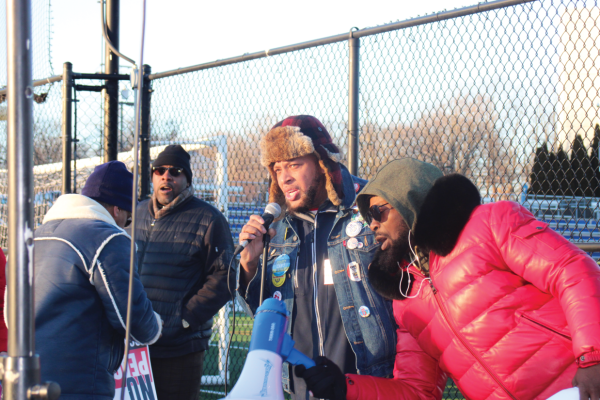Hospitality and tourism program adapts amid COVID-19
As the hospitality and tourism industry adapted to a cut in travel and virtual living because of COVID-19, so did education among those entering the field. The hospitality and tourism program at the University of New Haven used to feature out-of-state trips, team projects, and event planning. Students would work at the student-run dining spots on campus: the Hazell Nut Cafe located in Maxcy Hall and Jeffery’s Fusion Restaurant at the bottom of Harugari Hall. Both of these dining options are closed for the remainder of the 2021 spring semester along with trip planning and field trips.
This does not mean that students enrolled in this program are not getting the experience they need.
Jan Jones, coordinator for hospitality and tourism management, said that while the cafe is closed, there is a new course titled Cafe Management where students can develop a new business plan for the cafe.
“While it is exceptionally difficult for all of our industries right now, we are focused on teaching new skills and providing online hospitality-related training,” said Jones. “Last semester students developed online webinars related to the travel industry and explored technologies that are changing our industries.”
Another change that Jones made to the department was the capstone course. Now, students are creating an 80-mile virtual race in Connecticut that highlights Black history and innovation. According to junior Jocelyn Reed-Dubose, who is in the class, destinations in the race will include historical sites and Black-owned businesses.
The race will go through three districts – Hartford, Farmington and New Haven – before ending at the University of New Haven. Students are working in collaboration with the Old State House and Connecticut Sports & Convention Bureau to create the race. Near the end of the class, the prototype will be presented to a Connecticut Marketing Firm and the state’s Office of Tourism.
“The goal of this project is to promote Connecticut in global markets virtually in hopes that when people can travel again they will want to visit these sites in person,” said Jones.
This project also offers the community and students a chance to learn more about Black history within Connecticut.
“You don’t have to wait until Black History Month to learn about this stuff,” said Reed-Dubose. “And just to find out that there’s so much of it here in Connecticut, where you don’t think too much happened because it is a Northern state, but there’s Black history everywhere, you just have to look.”
Along with the capstone project, Reed-Dubose feels that hospitality and tourism classes were adapted well to teach in a time of COVID-19 and to teach about how the pandemic is changing the industry.
“We’re all getting ready to graduate and we have to deal with the fact that hospitality and tourism have to transition to that online platform,” said Reed-Dubose. “I do feel like it is preparing me, just differently than what a previous semester would have looked like.”

Beth Beaudry is a senior majoring in communication with a double concentration in journalism and public relations, and a minor in English. This is her...









